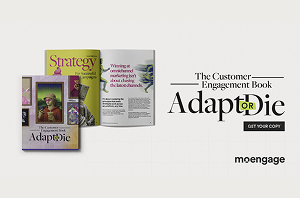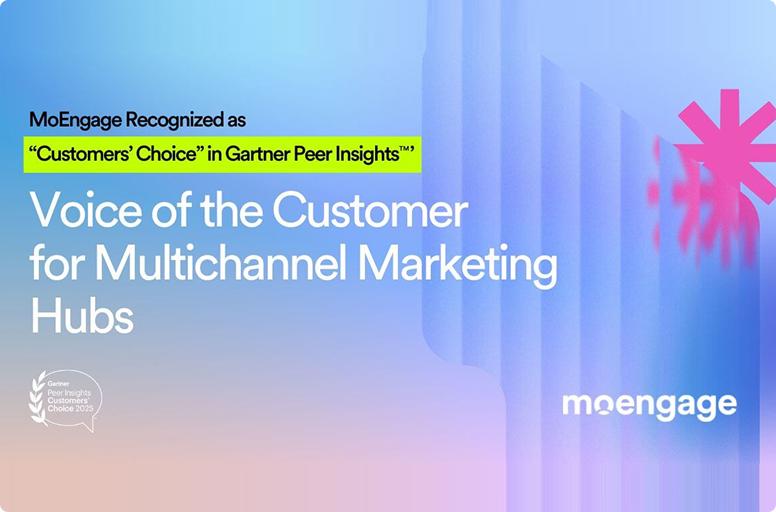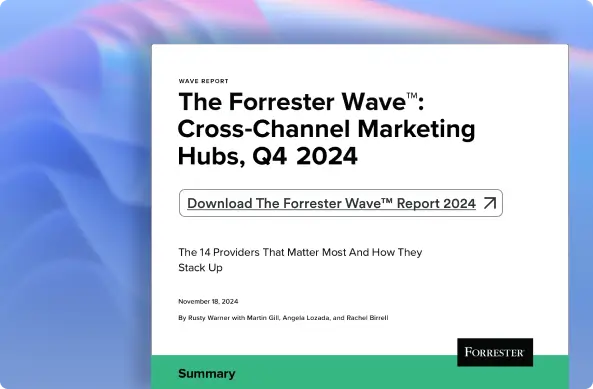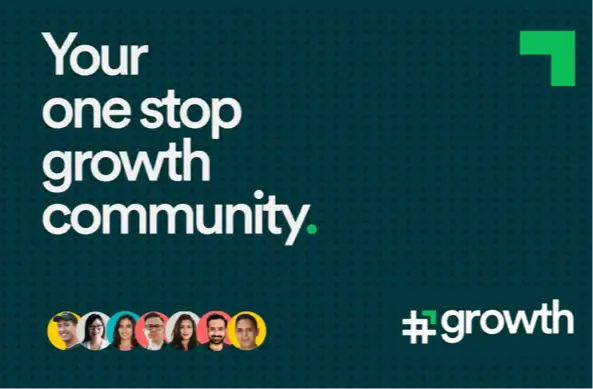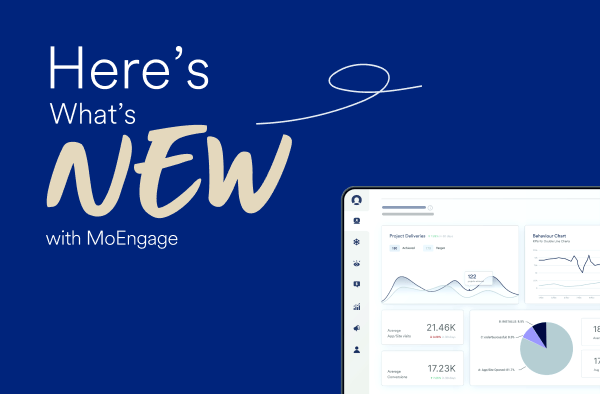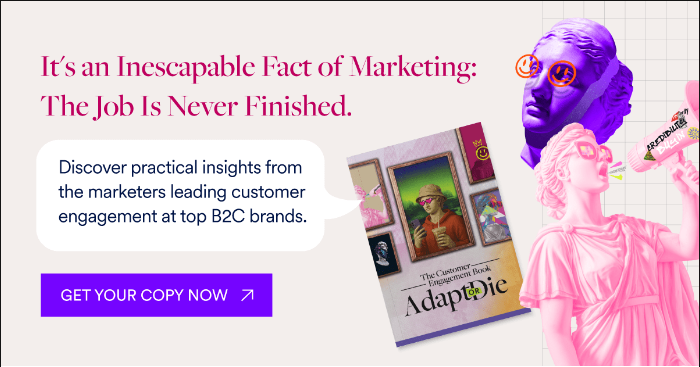Building the Modern Martech Stack: The Ins and Outs, and the Role AI Will Play
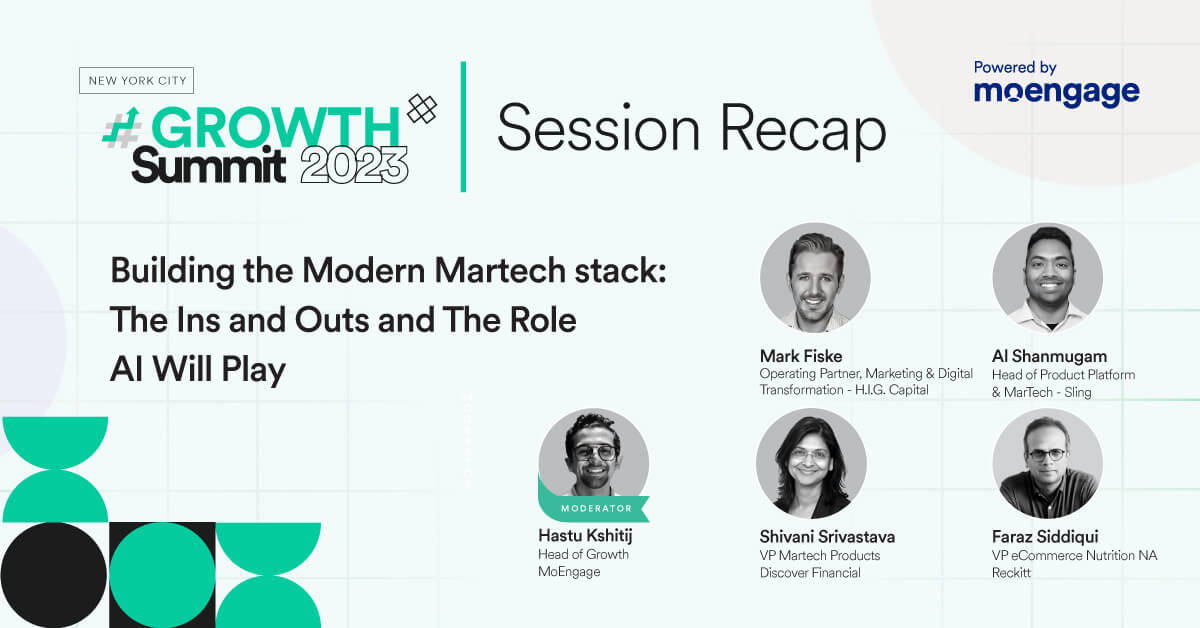
Reading Time: 5 minutes
Tools such as CRM, CEP, and CDP are pivotal elements in evolving the current modern Martech stack. The sum of these tools and how they are connected impact a brand’s marketing and customer engagement strategies.
In this session during our #GROWTH event in NYC, we spoke to panelists with diverse portfolios and industries to provide valuable insights on the dynamic synergy of technology, strategy, and how AI will define success in future marketing endeavors.
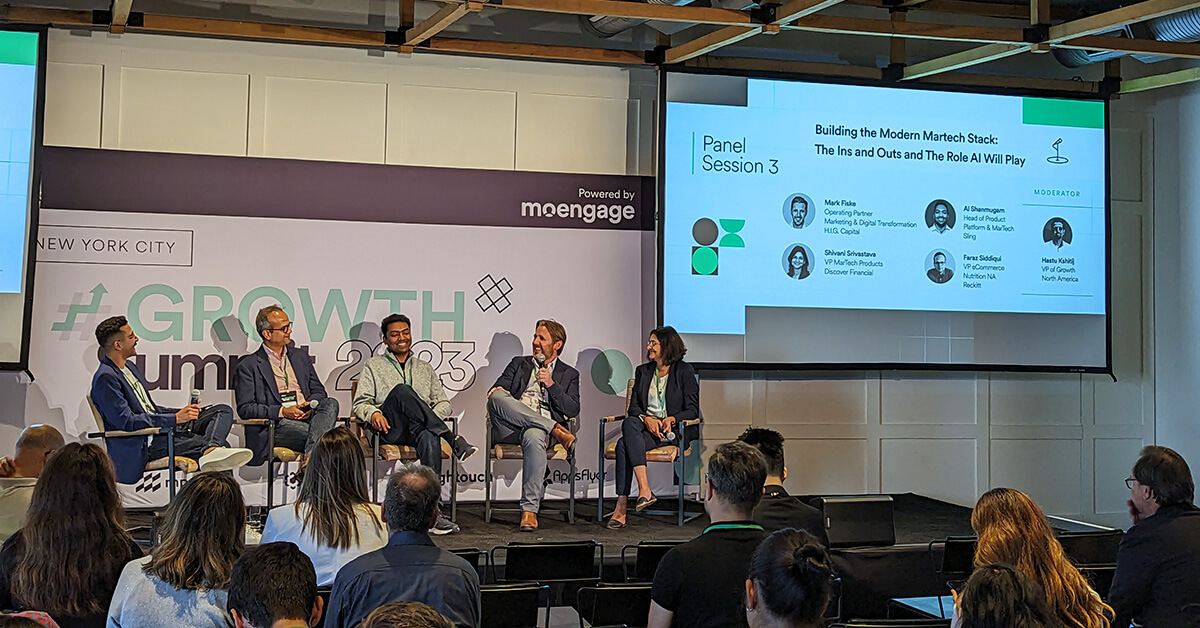
To give you a quick brief, we had:
- Speakers from H.I.G. Capital, Sling, Discover Financial, and Reckitt discuss the martech stack components, seamless tools integration and adaptability, and the role of AI in re-shaping the landscape within their specific industry.
- Experts such as Mark Fiske (Operating Partner of Marketing and Digital Transformation, H.I.G. Capital); Al Shanmugam (Head of Product Platform & MarTech, Sling); Shivani Srivastava (VP Martech Products, Discover Financial); Faraz Siddiqui (VP eCommerce of Nutrition NA, Reckitt) talking about changing dynamics of martech stack and AI evolution.
In case you missed the session — here are some critical takeaways. You can also watch the video on-demand below.
4 Key Takeaways of the Session
Takeaway #1. Developing a Ubiquitous Martech Stack
There are many solutions out there, and it gets hard to understand what is the best one. That’s why choosing a martech stack should depend entirely on the marketer and the customer they are catering to.
Things that any brand needs to remember when building a martech stack are:
- To know the Whats—marketing strategy, type of customer data and its analysis, engagement delivery channels, and partner network.
- An ecosystem covers analytics, segmentation, communications, and channels; these can be integrated seamlessly or an all-in-one platform while data compliant.
Marketers need to remember that in a martech, there is no one standard tool that delivers all the values. Instead, it is the sum of all the tools + how you connect and use them.
Time and again, we have seen with new technologies that as productivity grows, elasticity comes with it. As we get better at leveraging technology, marketers might want more and more of this, and the nature of our jobs will change as we monitor and manage it. But the overall output and value will be greater as a result.
– Mark Fiske, Operating Partner for Marketing & Digital Transformation at H.I.G. Capital
Another way to look at building a martech stack is to learn the business side of things — growth model, growth loops, value created in the business, and what needs to be done using what tools. Having a map directly related to your growth model then understanding what tool/platform will help deliver this and exceptional customer experience is what matters.
Takeaway #2. AI in the Customer Engagement Space
The transformative power of AI is revolutionizing customer engagement and scaling businesses. AI-powered platforms offer natural language processing, sentiment analysis, and machine learning features to help you automate tasks and deliver hyper-personalized, engaging experiences.
AI is an integral part of the entertainment industry, as most of our catalogs have a million titles. So we need to market/engage customers based on our understanding of what they prefer using AI recommendations.
– Al Shanmugam, Head of Product Platform & MarTech at Sling
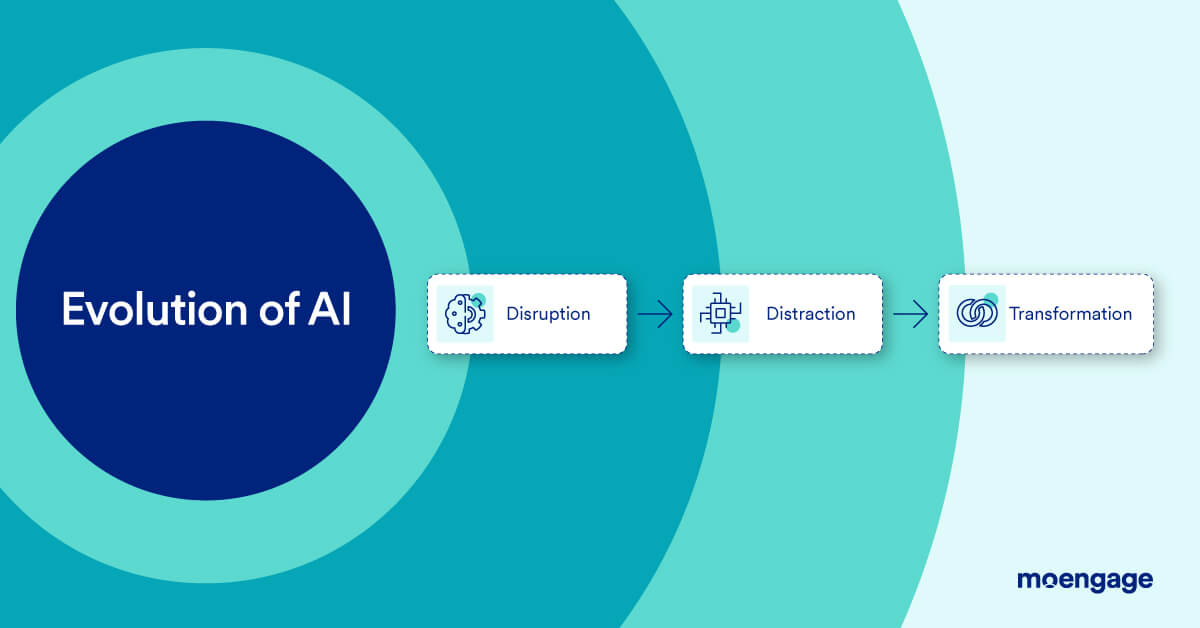
Takeaway #3. Arising Challenges with AI
When using AI to make customer experience exceptional, one must understand that it brings an interesting challenge. Privacy measurement is more complicated with AI. And customers are increasingly concerned about data privacy and ethical AI practices.
For AI to work its magic in the most relevant manner, it needs complete access to customer data. However, that’s where most challenges arise.
Responsible engagement is a blend of people, process, and technology. Collect customer data and classify it with the help of privacy, regulations, and compliance teams. You can use this data to improve engagement, but take accountability of the data and how it needs to be utilized. Respect your customer’s preferences and their consent.
– Shivani Srivastava – VP Martech Products at Discover Financial
The digital growth in the last few decades resulted in (maybe) misuse of digital data for various reasons, such as poor data cataloging and classification or no idea of what data is going where. To ensure this digital data misuse is not happening, it became crucial to have privacy and security in place.
AI, with due diligence toward privacy, can help marketers. They must prioritize transparency, privacy, and ethical AI practices to build customer trust and loyalty.
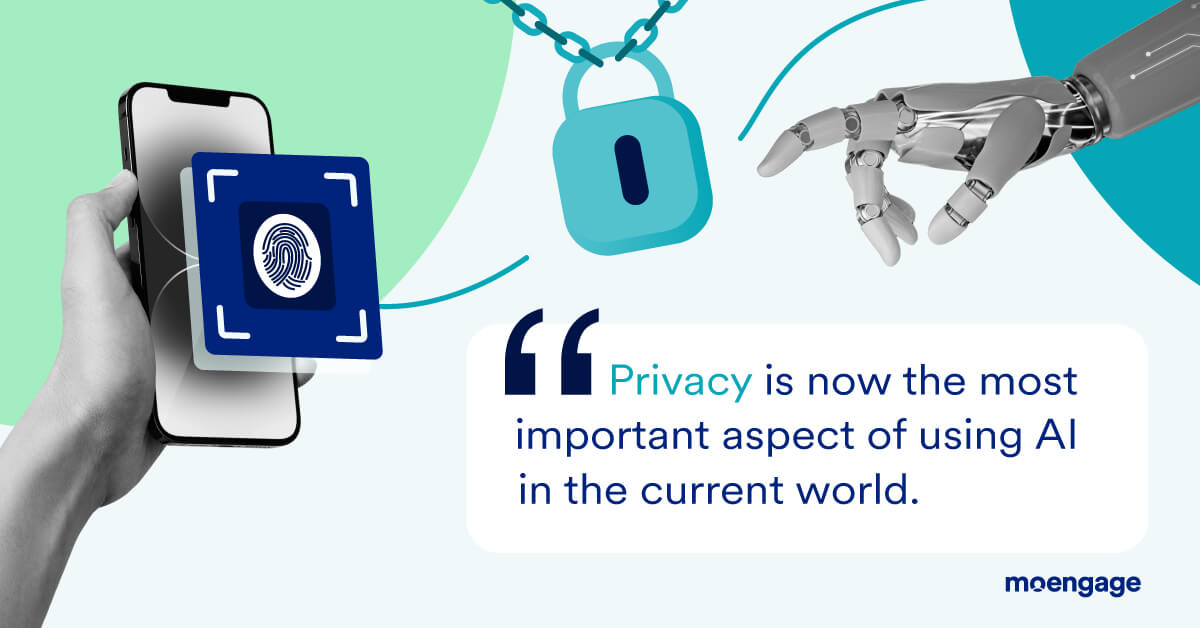
Takeaway #4. Embrace AI Strategically to Enhance Customer Experience
If used AI strategically (while keeping privacy and security in check), marketers can benefit from it immensely in the following ways:
- Get recommendations using customer history, preferences/affinities, and curating product catalogs.
- Utilize predictive modeling using recency, frequency, monetary, and churn predictions.
- Discover product/content using search/watch history, favorites, and wishlists.
- Offer personalization using deeper customer insights such as demographics, campaign, and journey data.
Stay informed about evolving customer expectations and industry trends while keeping track of the evolving landscape of AI regulations and compliance.
Think big, start small, and scale fast – that’s how we need to approach AI to enhance customer engagement. Consider the customer problem we’re solving and build a tool/platform to ease the process.
– Faraz Siddiqui, VP of E-commerce for Nutrition NA at Reckitt
AI will change things, but it won’t replace humans.
Humans need to be there to balance the role of AI in customer engagement to remove privacy misuse or ethical issues. Strategically, AI will help marketers manage their time better but automate redundant tasks while ensuring it is customized.
Striking the right balance between humans and AI in customer engagement is the future, ensuring ethical practices and efficiency.
AI’s role in automating tasks and delivering personalization is changing the game, and being aware of how to influence this will be key for marketers!
Here are some recaps and recordings of other insightful sessions that we had at #GROWTHSummit NYC 🚀:
-
Customer Journey to Nowhere: The Funny Side of Customer Engagement With Marketoonist
-
Driving Customer Engagement With Hyper-personalization and Automation
-
Delivering Immersive Experiences through Storytelling, Insights, and Data
-
The Digital Evolution of Publishers Clearing House
-
The #GROWTH Story of Poshmark

